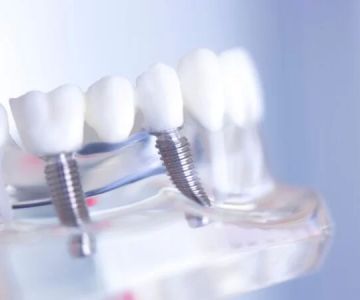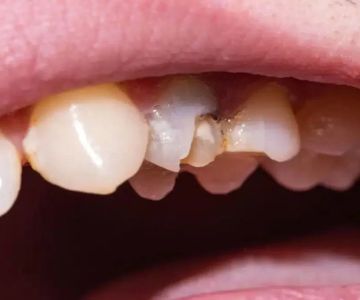- 1. Understanding Gum Bleeding
- 2. Common Causes of Gum Bleeding
- 3. How to Treat Gum Bleeding
- 4. Effective Remedies for Gum Bleeding
- 5. Preventing Gum Bleeding
- 6. When to See a Dentist for Gum Bleeding
1. Understanding Gum Bleeding
Gum bleeding is a common issue that many people experience, often occurring when brushing or flossing the teeth. While it can be alarming, occasional gum bleeding is often not a serious condition. However, persistent bleeding gums may indicate underlying oral health problems that require attention. Understanding the causes, treatments, and prevention strategies for gum bleeding is essential for maintaining good oral hygiene and avoiding potential complications.
In most cases, gum bleeding is caused by inflammation of the gums, known as gingivitis. This condition is typically the result of poor oral hygiene, which leads to plaque buildup on the teeth and gums. Plaque contains bacteria that irritate the gum tissue, causing it to bleed. Fortunately, gum bleeding can often be reversed with proper oral care and attention. However, if left untreated, it can progress to more severe gum disease, such as periodontitis, which may lead to tooth loss.
2. Common Causes of Gum Bleeding
Gum bleeding can occur for a variety of reasons, with some being more common than others. Here are the most frequent causes of gum bleeding:
- Poor Oral Hygiene: The most common cause of gum bleeding is inadequate brushing and flossing, which allows plaque to accumulate along the gumline. This plaque leads to irritation and inflammation of the gums, making them more prone to bleeding.
- Gingivitis: Gingivitis is an early stage of gum disease caused by bacterial buildup in the mouth. Symptoms include red, swollen gums that bleed easily when brushing or flossing. With proper treatment, gingivitis is usually reversible.
- Periodontitis: If gingivitis is left untreated, it can develop into periodontitis, a more serious form of gum disease. Periodontitis can cause the gums to recede, leading to bleeding, pain, and even tooth loss in severe cases.
- Vitamin Deficiencies: Deficiencies in vitamin C (scurvy) or vitamin K can also contribute to gum bleeding. Vitamin C is essential for collagen production, which helps keep the gums healthy, while vitamin K plays a role in blood clotting.
- Medications: Certain medications, such as blood thinners (anticoagulants), can increase the risk of bleeding gums. If you’re on such medications, it’s important to maintain regular dental checkups and discuss any concerns with your doctor.
- Pregnancy: Hormonal changes during pregnancy can cause a condition called pregnancy gingivitis, which leads to swollen and bleeding gums. This condition is usually temporary and resolves after childbirth.
Identifying the underlying cause of gum bleeding is crucial for selecting the right treatment and preventing further complications. If gum bleeding persists or worsens, it’s essential to consult with a dentist to rule out more serious conditions.
3. How to Treat Gum Bleeding
Treating gum bleeding involves both immediate care to stop the bleeding and long-term strategies to improve oral health. Here are some effective methods for treating gum bleeding:
- Proper Brushing and Flossing: Start by brushing your teeth gently twice a day using a soft-bristled toothbrush and fluoride toothpaste. Floss daily to remove plaque and food particles from between your teeth. Be careful not to brush too hard, as this can irritate the gums further and cause more bleeding.
- Use Antibacterial Mouthwash: An antibacterial mouthwash can help reduce plaque buildup and fight infection in the gums. Look for a mouthwash that contains chlorhexidine or essential oils, which are effective in controlling gum inflammation.
- Rinse with Salt Water: Rinsing with warm salt water can help soothe inflamed gums, reduce swelling, and promote healing. Mix one teaspoon of salt in a cup of warm water and swish it around your mouth for 30 seconds to a minute, then spit it out.
- Cold Compress: If your gums are swollen and bleeding, applying a cold compress to the outside of your mouth can help reduce swelling and numb the area. Use a cold pack wrapped in a cloth and apply it to the affected side of your face for 10-15 minutes at a time.
These treatments can help control gum bleeding and reduce inflammation, but ongoing care is necessary to prevent recurrence. Regular dental visits are crucial for maintaining healthy gums and preventing future issues.
4. Effective Remedies for Gum Bleeding
In addition to the standard treatments for gum bleeding, there are several natural remedies that can help soothe and heal your gums:
- Turmeric Paste: Turmeric has natural anti-inflammatory and antimicrobial properties. Applying a paste made from turmeric powder and water to your gums can help reduce swelling and promote healing. Let it sit for 5-10 minutes before rinsing with warm water.
- Aloe Vera Gel: Aloe vera is well-known for its soothing properties. Applying fresh aloe vera gel to your gums can help calm irritation and reduce bleeding. Ensure that the aloe vera is free from additives and use it twice daily.
- Green Tea: Green tea contains antioxidants that can help reduce inflammation and support gum health. Drinking a cup of green tea daily or using cooled green tea as a mouth rinse can help promote healing and prevent gum bleeding.
- Clove Oil: Clove oil has analgesic and anti-inflammatory properties, making it an effective remedy for gum pain and bleeding. Dilute a few drops of clove oil with a carrier oil, such as olive oil, and apply it to the affected area using a cotton ball.
These natural remedies can complement traditional treatments and help maintain gum health. However, they should not replace professional dental care, especially if gum bleeding persists.
5. Preventing Gum Bleeding
Preventing gum bleeding is primarily about maintaining good oral hygiene and addressing the underlying causes of the problem. Here are some steps you can take to reduce your risk of gum bleeding:
- Brush and Floss Regularly: Regular brushing and flossing are the most important steps in preventing gum disease and bleeding gums. Brush twice a day and floss at least once a day to keep your gums healthy.
- Eat a Balanced Diet: A diet rich in vitamins and minerals, particularly vitamin C, can help support healthy gums. Include fruits and vegetables like oranges, strawberries, and spinach in your diet to prevent deficiencies that can lead to gum problems.
- Quit Smoking: Smoking weakens the immune system and increases the risk of gum disease. If you smoke, quitting can significantly improve your gum health and reduce the risk of bleeding.
- Visit Your Dentist Regularly: Regular dental checkups and cleanings are essential for preventing gum disease. Your dentist can identify early signs of gum problems and provide treatment before they worsen.
By following these preventive measures, you can reduce your risk of gum bleeding and maintain healthy gums over the long term.
6. When to See a Dentist for Gum Bleeding
If gum bleeding persists or is accompanied by pain, swelling, or bad breath, it’s important to see a dentist. Persistent bleeding gums could indicate a more serious condition, such as periodontitis, which requires professional treatment. Your dentist can perform a thorough examination, diagnose the underlying cause, and provide the appropriate treatment to stop the bleeding and prevent further damage to your gums.
Regular dental visits are crucial for maintaining optimal oral health. If you are unsure about your gum health or have concerns about gum bleeding, don’t hesitate to schedule an appointment with a dentist. Early intervention can help prevent more severe issues and protect your overall dental health.







 Westgate Dental Arts
Westgate Dental Arts Coventry Family Dental
Coventry Family Dental Familia Dental
Familia Dental Dr. Daniel S. Fife, DDS
Dr. Daniel S. Fife, DDS Dentistry At Suburban Square: Michael I. Wollock, DMD
Dentistry At Suburban Square: Michael I. Wollock, DMD Comfort Care Dental
Comfort Care Dental The Importance of Oral Health Education During Pregnancy for a Healthy Pregnancy
The Importance of Oral Health Education During Pregnancy for a Healthy Pregnancy Why Skipping Dental Checkups Can Lead to Bigger Oral Health Problems
Why Skipping Dental Checkups Can Lead to Bigger Oral Health Problems Best Tips for Brushing Your Teeth Properly for Healthy Gums: Essential Techniques for Oral Health
Best Tips for Brushing Your Teeth Properly for Healthy Gums: Essential Techniques for Oral Health Advantages of Porcelain Dental Restorations
Advantages of Porcelain Dental Restorations How Can Diabetes Cause Tooth and Gum Problems? Preventing and Managing Oral Health Issues
How Can Diabetes Cause Tooth and Gum Problems? Preventing and Managing Oral Health Issues Healthy Habits for Promoting Good Oral Health and Hygiene: Tips for a Healthy Smile
Healthy Habits for Promoting Good Oral Health and Hygiene: Tips for a Healthy Smile